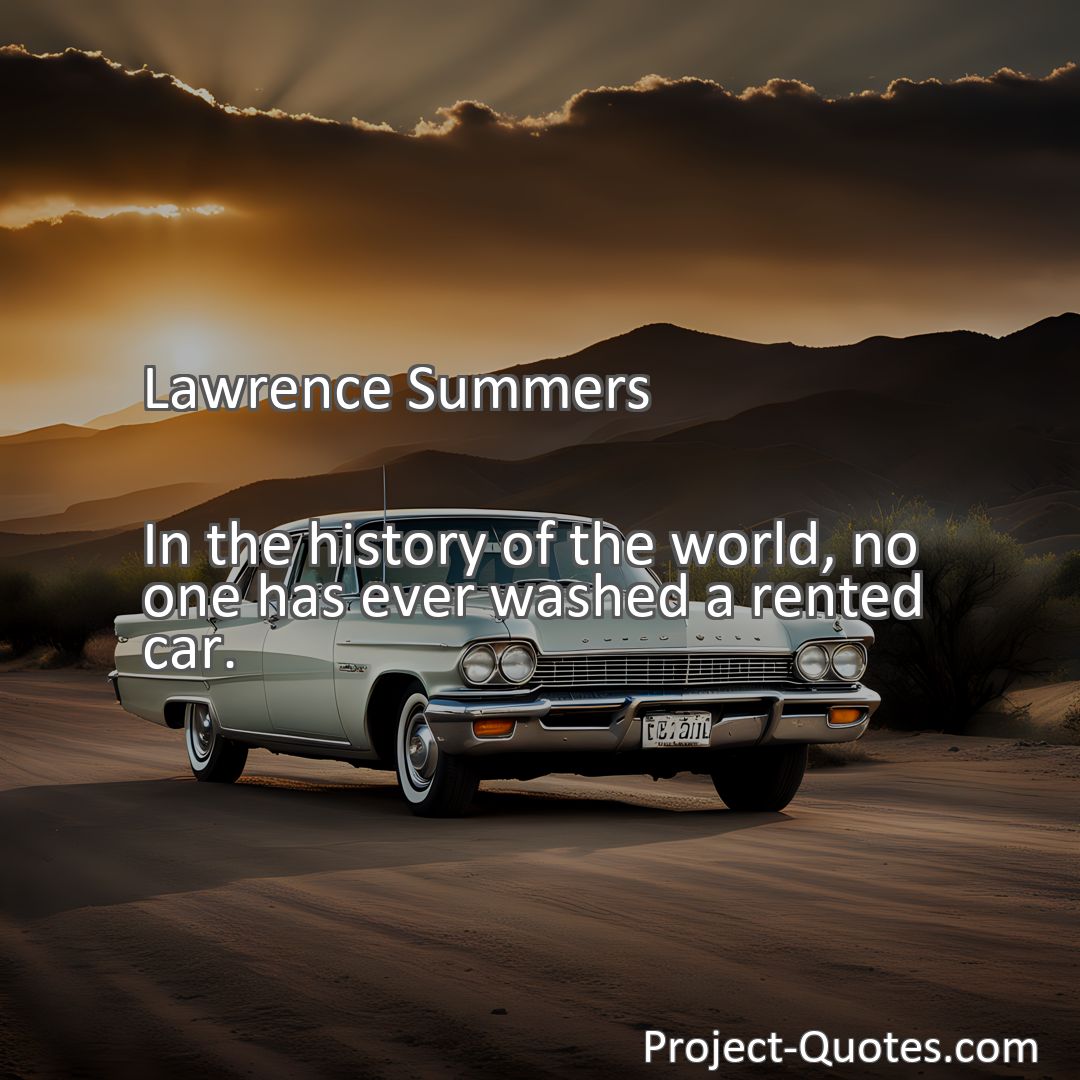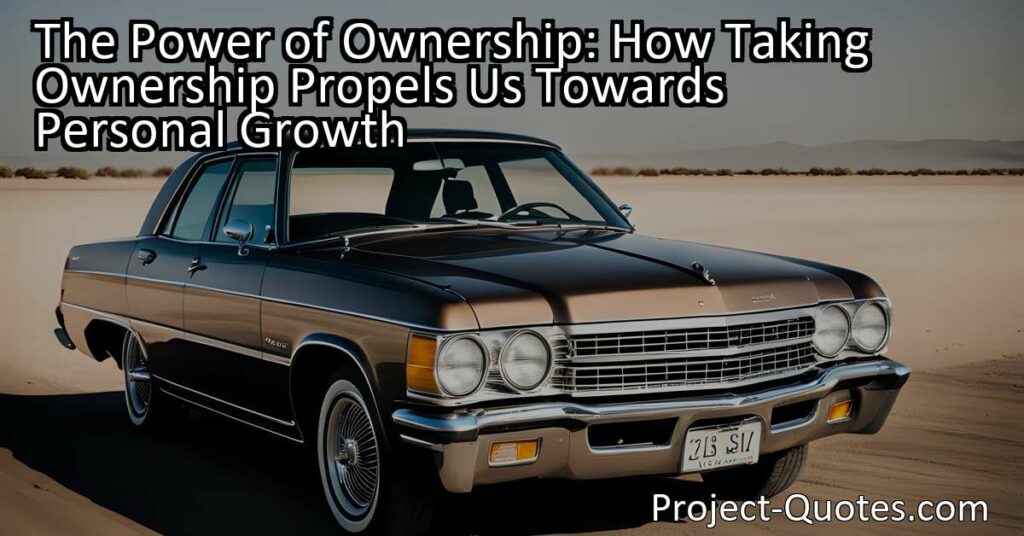In the history of the world, no one has ever washed a rented car.
Lawrence Summers
The Power of Ownership: How Taking Ownership Propels Us Towards Personal GrowthDiscover the transformative power of ownership as we delve into the quote, “In the history of the world, no one has ever washed a rented car.” Learn how the concept of ownership influences our behavior, motivates us to take care of our belongings, and extends to intangible assets like knowledge and experiences. Embracing ownership leads to personal growth, accountability, and a more fulfilling existence.
Table of Contents
Meaning of Quote – In the history of the world, no one has ever washed a rented car.
Have you ever stopped to think about the saying, “In the history of the world, no one has ever washed a rented car”? This thought-provoking quote comes from economist and former Secretary of the Treasury, Lawrence Summers. While it may seem like a simple observation, Summers raises an important point about human behavior and our tendency to take care of what we own.
When we think about washing a car, the image of someone meticulously scrubbing and polishing their beloved vehicle often comes to mind. It’s a task that requires time, effort, and attention to detail. But why is it that most people only engage in such an activity with their own car, and not with a rented one?
Ownership plays a significant role in how we perceive and care for our belongings. When we own something, it becomes an extension of ourselves. We take pride in its appearance and strive to keep it in good condition. After all, no one wants to see their personal investment deteriorate. On the other hand, when something is borrowed or rented, there is a sense of detachment. We may use it, but we don’t feel the same sense of responsibility towards it.
The quote implies a deeper meaning beyond washing cars. It sheds light on our behavior when it comes to taking care of things that are not truly ours. In today’s throwaway culture, where disposable items are readily available, we often lack the incentive to maintain or repair what we don’t own. This disposable mindset has led to a significant increase in waste and environmental degradation.
Imagine a world where everyone treated rented cars as if they were their own. It would not only save the rental companies substantial amounts of money on repairs and maintenance but would also have a positive impact on the environment. If we approached all rented or borrowed items with the same level of care and respect as our own possessions, we could contribute to a more sustainable way of life.
The underlying message of the quote extends beyond material possessions to the concept of responsibility. It teaches us the importance of taking ownership, not just of tangible things but also of our actions, decisions, and the consequences that arise from them. This principle is applicable in various areas of life, from personal relationships to academic and professional endeavors.
By applying this mindset to various aspects of our lives, we can foster a sense of accountability and pride in everything we do. When we take ownership, we become more engaged, committed, and motivated. This leads to better outcomes and satisfaction in our endeavors. Whether it’s taking care of a rented car, completing a school project, or maintaining a healthy relationship, the results of our efforts are greatly influenced by the level of ownership we exhibit.
Furthermore, the quote from Lawrence Summers encourages us to think about the role of ownership in society. Ownership is a fundamental pillar of our economic system, driving innovation, productivity, and investment. It incentivizes individuals and businesses to work hard, take risks, and create value. However, it is essential to strike a balance and ensure that ownership does not become an excuse for greed, exploitation, or inequality.
From an early age, we are taught the value of ownership and the importance of taking responsibility for our possessions. Parents often instill these values by giving children tasks and responsibilities, such as taking care of pets or tidying their rooms. These early lessons help shape our character and influence our behavior as we grow older.
However, the concept of ownership goes beyond material possessions. It encompasses intangible assets like knowledge, skills, and experiences. When we take ownership of our education, for instance, we become proactive learners who actively seek out opportunities to acquire knowledge and develop critical thinking skills. This sense of ownership propels us towards personal growth and intellectual achievement.
In conclusion, the insightful quote by Lawrence Summers, “In the history of the world, no one has ever washed a rented car,” provokes us to reflect on our behavior regarding ownership and responsibility. While it may seem like a simple observation, it carries a powerful message about our inclination to take care of what we own and the impact this has on various aspects of our lives. By embracing a sense of ownership, both in material possessions and intangible aspects of life, we can cultivate a more sustainable, accountable, and fulfilling existence.
I hope this quote inspired image brings you hope and peace. Share it with someone who needs it today!


